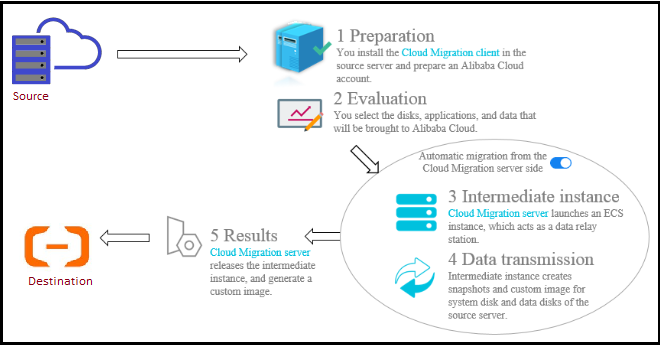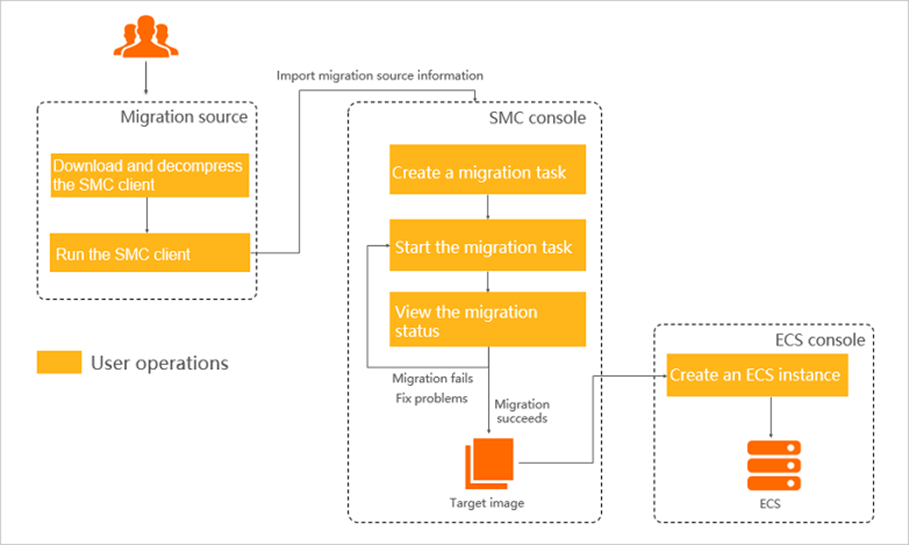By Shantanu Kaushik
Business and service expansion is the primary goal of any strategist; as a business grows, so does the need to upgrade its technology stack. The manner in which enterprises develop their businesses today have changed, and it's no doubt that technology has played a big part in this shift.
As technology evolves so will the tools of the trade. Adapting to these changes and adopting new tools is a wise practice for any business or organization. One of the most popular approaches that many of today's business undergo to be more agile is cloud migration. Cloud migration, in simple terms, is basically a process of moving digital business to cloud. Migration can be from on-premises to the cloud, from legacy infrastructure to the cloud, or moving from one cloud platform to another.
In this article, we will discuss the key factors that businesses should consider before making the shift to the cloud. We will also discuss the best practices you can adopt when migrating your infrastructure to Alibaba Cloud.
On-premises security solutions are as good as you make it. What I mean by that is, housing your data center in-house provides physical resource protection, but the level of applied security practices is as good as the infrastructure. Levels of exposure with the outside world generally decides how secure your on-premises setup is.
On the contrary, cloud providers like Alibaba Cloud have millions of customers that rely on their security measures and compliance standards to keep their data secure. With years of experience protecting the entire Alibaba ecosystem, Alibaba Cloud follows the highest level of security practices in accordance with the industry practice and set standards.
A dedicated security profile is always there to counter any sort of malicious attack on your cloud setup. Authentication at different levels, authorization, auditing, and logging are standard practices with Alibaba Cloud. On-premises can be secure, but meeting the security standards and product lineup of a cloud platform is extremely challenging and time consuming.
In addition, infrastructure security products like the Web Application Firewall (WAF), Anti-DDOS protection, and Cloud Firewall, Identity and Access Control products like the Resource and Access management (RAM) that Alibaba Cloud offer help ensure the robustness of your data security. These products and services offer an unmatched level of security that most on-premises solutions cannot offer.
While working with on-premises data center, there are direct and indirect costs involved. Provisioning necessary hardware resources and software-based licensing itself is a big chunk (CAPEX). In addition, indirect costs (OPEX) like hardware and software maintenance, space, electricity, physical resource security are necessary to ensure that your data center is constantly running at peak performance.
These are some of the areas that you can definitely save on when adopting a cloud setup. Managing a physical data center requires in-house personnel and setting up of a policy for operations, but a cloud based approach doesn't incur all these costs. Different payment policies like pay-as-you-go also helps an organization to save more by letting you pay for only what you need. The savings from cloud computing can help enterprises concentrate their budgets on other areas for better business development.
On-premises setup falls short on flexibility when compared to cloud computing. Flexibility is one of the key requirements for any setup and cloud services provide businesses with greater flexibility. With Elastic Compute Service (ECS) and Auto-Scaling, one can provision and recall resources depending on requirements. These requirements can be adjusted manually, or can be triggered using configurations based on different network conditions.
Another significant improvement in performance is gained by using scalable cloud storage solutions like Object Storage Service (OSS). Managed services and solutions like database, Resource Orchestration Service (ROS), and Operation Orchestration Service (OOS) are also highly optimized to maximize the performance of the instances. Any business or organization can feel the impact almost immediately after they make the shift.
Visual Representation of Migration with Alibaba Cloud
Despite the advantages of cloud computing, migrating your infrastructure is not a straightforward process for many. Evaluating your current practices, requirements, and building a strategy is highly recommended to avoid downtime and potential data loss. Generally speaking, your migration strategy should include:
Current capacity of computing
Outlining current business practices
Business Integration and Legacy Application
Making a sound migration strategy is highly essential. You need to start by doing a capacity evaluation and then think about opting for a service that best suits your requirement. You should also make sure that you don't drastically change the way your organization handles the core business practices.
If there are certain practices which will require major operational shift, you need to train team or personnel to handle these changes to perfectly adopt the shift.
On this thought, Alibaba Cloud also offers training and certification programs with Alibaba Cloud Academy. Here you can find training programs for different products and services offered by Alibaba Cloud and take your pick at different cloud professional certifications as well.
The main focus should be to maintain an uninterrupted service for your users. This requires migration in phases. Phased migration is considered the best practice to follow for medium to large enterprises.
After you have a strategy in place, you can start migrating your existing data. Alibaba Cloud Server Migration Center (SMC) supports incremental migration, which means that you can synchronize incremental data of a source server to Alibaba Cloud without interrupting your services. This process doesn't hinder the already running services and provides a much smoother migration process.
Quick Tip: Server Migration Center allows you to migrate to Alibaba cloud from on-premises data centers (Physical to Cloud), Virtual Machines (Virtual to Cloud) and other third-party cloud service providers. (Cloud to Cloud).
The migration process with SMC also supports resumable migration scenarios and while the migration process is running, there is no service interruption. With an impeccable compatibility with Alibaba's own Elastic Compute Service (ECS) the migration process has a very high success rate.

SMC has been designed to cater all migration needs with cost effective measures to ensure a stable, effective and successful migration of data and applications from your source server to Alibaba Cloud.
SMC has a very light weight client that doesn't require any installation. It also provides a centralized monitoring of operations and gives out detailed overview for each migration. With multi-threaded data transmission approach provides you with improved efficiency and better transmission rates.
The migrated data can be stored in container registry, that allows for cost effective and secure deployment of applications using the Alibaba Simple Application Server.
The views expressed herein are for reference only and don't necessarily represent the official views of Alibaba Cloud.
Evolution of the Real-time Data Warehouses of the Alibaba Search and Recommendation Data Platform
Best Practices: Migrating from On-Premises to the Cloud (Part 2)

2,593 posts | 792 followers
FollowAlibaba Clouder - November 2, 2020
Alibaba Clouder - November 3, 2020
Alibaba Clouder - March 10, 2021
Alibaba Clouder - August 6, 2020
Alibaba Clouder - March 1, 2019
Click2Cloud - April 17, 2020

2,593 posts | 792 followers
Follow Cloud Migration Solution
Cloud Migration Solution
Secure and easy solutions for moving you workloads to the cloud
Learn More Database Migration Solution
Database Migration Solution
Migrating to fully managed cloud databases brings a host of benefits including scalability, reliability, and cost efficiency.
Learn More Oracle Database Migration Solution
Oracle Database Migration Solution
Migrate your legacy Oracle databases to Alibaba Cloud to save on long-term costs and take advantage of improved scalability, reliability, robust security, high performance, and cloud-native features.
Learn More ADAM(Advanced Database & Application Migration)
ADAM(Advanced Database & Application Migration)
An easy transformation for heterogeneous database.
Learn MoreMore Posts by Alibaba Clouder